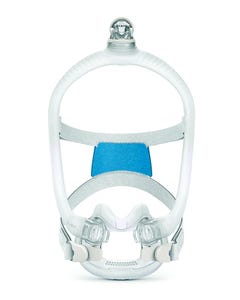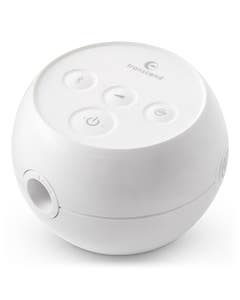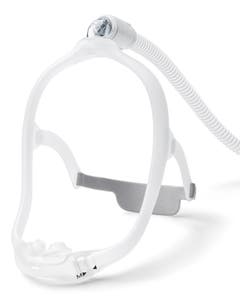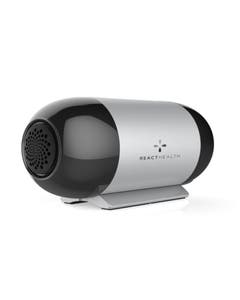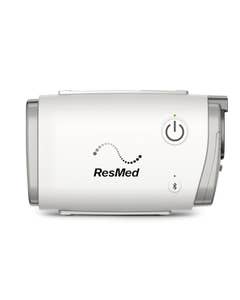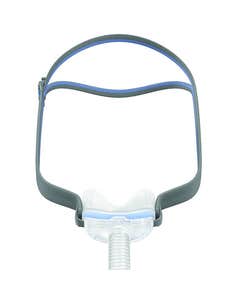What Happens When You Don’t Stay Consistent with CPAP Therapy?
Key Takeaways
- Consistent CPAP therapy effectively treats Obstructive Sleep Apnea (OSA).
- Not staying consistent with treatment can lead to side effects and even serious health-related conditions.
- Having the right CPAP machine and other equipment means you don’t need to skip therapy, even when you are away from home and traveling.
Not using your CPAP machine for one can lead to immediate health problems. Consistent CPAP therapy provides continuing benefits, and it is better for your overall health. Failure to use your CPAP machine regularly can cause your sleep apnea to return full force, and it can bring with it some unpleasant side effects and concerning health risks.
What is CPAP Therapy?
CPAP therapy (Continuous Positive Airway Pressure) is used to treat individuals who have obstructive sleep apnea (OSA). A specialized machine delivers air constantly through a mask. The mask may fit over the nose, or over both the nose and mouth. This steady flow of air helps to keep the upper airway open during sleep.
CPAP machines are designed to prevent the airway from collapsing, which allows for normal breathing while sleeping. Uninterrupted sleep offers numerous health benefits and helps prevent serious side effects that people with sleep apnea often suffer from.
Why Do I Have to Use CPAP Therapy Every Night?
CPAP therapy is a lifestyle change. To get the most benefits out of it, it should be used every night. The most effective treatment is continuous CPAP use. Skipping CPAP therapy, even for one night, can potentially reverse the improvements made in cognitive function, daytime sleepiness, and other side effects often associated with sleep apnea. Regular CPAP use helps maintain the positive effects of therapy on your overall health and well-being.
Side Effects of Not Treating Sleep Apnea
If you have been diagnosed with sleep apnea, it’s important to follow the recommendations of your medical professionals. CPAP therapy is an effective treatment option and it’s important to use it consistently. Whether you are at home or taking a quick weekend trip, using your CPAP device helps you get a restorative night of sleep. There are some serious side effects of skipping CPAP therapy, even for one night.¹


Increased Risk of Other Illnesses
If OSA is left untreated, it can lead to an increased risk for developing other medical conditions. Liver problems, metabolic syndrome, Type 2 diabetes, and cardiovascular conditions can be the result of getting inadequate sleep. One study stated that failing to adequately treat OSA using can lead to premature death.²
Daytime Fatigue and Lack of Energy
If you don’t use your CPAP machine at night, you may wake up in the morning feeling exhausted. Daytime fatigue is a common side effect of sleep apnea due to the lack of quality sleep. When you don’t get enough sleep, it can affect your ability to concentrate, which affects your overall performance at school or at work. It can be especially dangerous to drive a vehicle when you haven’t had a good night’s sleep. Being consistent with CPAP therapy will help you feel more rejuvenated and energized the next day.
Immediate Effect on Blood Pressure
Failing to use your CPAP machine regularly can cause elevated blood pressure. Studies show that stopping CPAP therapy can increase blood pressure readings drastically when compared to those who continue treatment without interruption. Abruptly stopping CPAP can put a strain on your cardiovascular system, which increases the risk of developing hypertension.³
Frequent Headaches
CPAP therapy treats obstructive sleep apnea, and failing to use the treatment as recommended can cause frequent headaches. The intensity of the headaches can vary from morning headaches to tension headaches or migraines.⁴ Failing to use your CPAP can cause headaches for many reasons.
-
Reduced Oxygen Levels. Sleep apnea disrupts normal sleep breathing patterns which can cause oxygen levels in the blood to drop. As a result, blood vessels in the brain widen, which increases pressure and can trigger headaches.
-
Increased Carbon Dioxide. If oxygen levels drop, carbon dioxide can build up in the body, which can lead to headaches.
-
Muscle Tension. OSA can lead to muscle tension, particularly in the neck. This tension can radiate to the head and cause headaches.
-
Disrupted Sleep. Reduced sleep quality and frequent awakenings caused by OSA can trigger or worsen headaches.
-
Hormonal Changes. Sleep disruptions may alter normal hormone production. This can impact the body’s pain threshold and lead to headaches.
How to Bring Along CPAP Therapy While Traveling
You do not have to compromise your health by skipping CPAP therapy when you travel. A portable CPAP machine is a convenient solution. They are small enough to carry-on, and easy to pack no matter how you choose to travel. Our CPAP Travel Guide can help you choose a suitable CPAP machine and provide tips for traveling.
Conclusion
Continuous CPAP therapy is effective for treating OSA, and skipping even one night can cause health-related problems. Having the right CPAP equipment to treat obstructive sleep apnea is key to effective treatment. The CPAP Shop carries a wide selection of CPAP machines and supplies, including CPAP machines designed for travel. You don’t have to worry about missing treatments, so get what you need online! For additional information and assistance, call our team of experts at 866-414-9700 today.
References
- National Institutes of Health. (2018). Sleep Apnea and Hypertension: A Review of the Literature. National Center for Biotechnology Information. Retrieved from https://pmc.ncbi.nlm.nih.gov/articles/PMC5803046/#sec9
- American Academy of Sleep Medicine. (2020). Study Shows That People with Sleep Apnea Have a High Risk of Death. Retrieved from https://aasm.org/study-shows-that-people-with-sleep-apnea-have-a-high-risk-of-death/
- Healthline. (2020). Why Sleep Apnea Affects Your Blood Pressure. Healthline. Retrieved from https://www.healthline.com/health/sleep-apnea/sleep-apnea-hypertension#:~:text=Why%20sleep%20apnea%20affects%20your,oxidative%20stress
- Healthline. (2020). How Sleep Apnea May Contribute to Migraines. Healthline. Retrieved from https://www.healthline.com/health/sleep-apnea-and-migraines#migraine-causing-sleep-apnea





